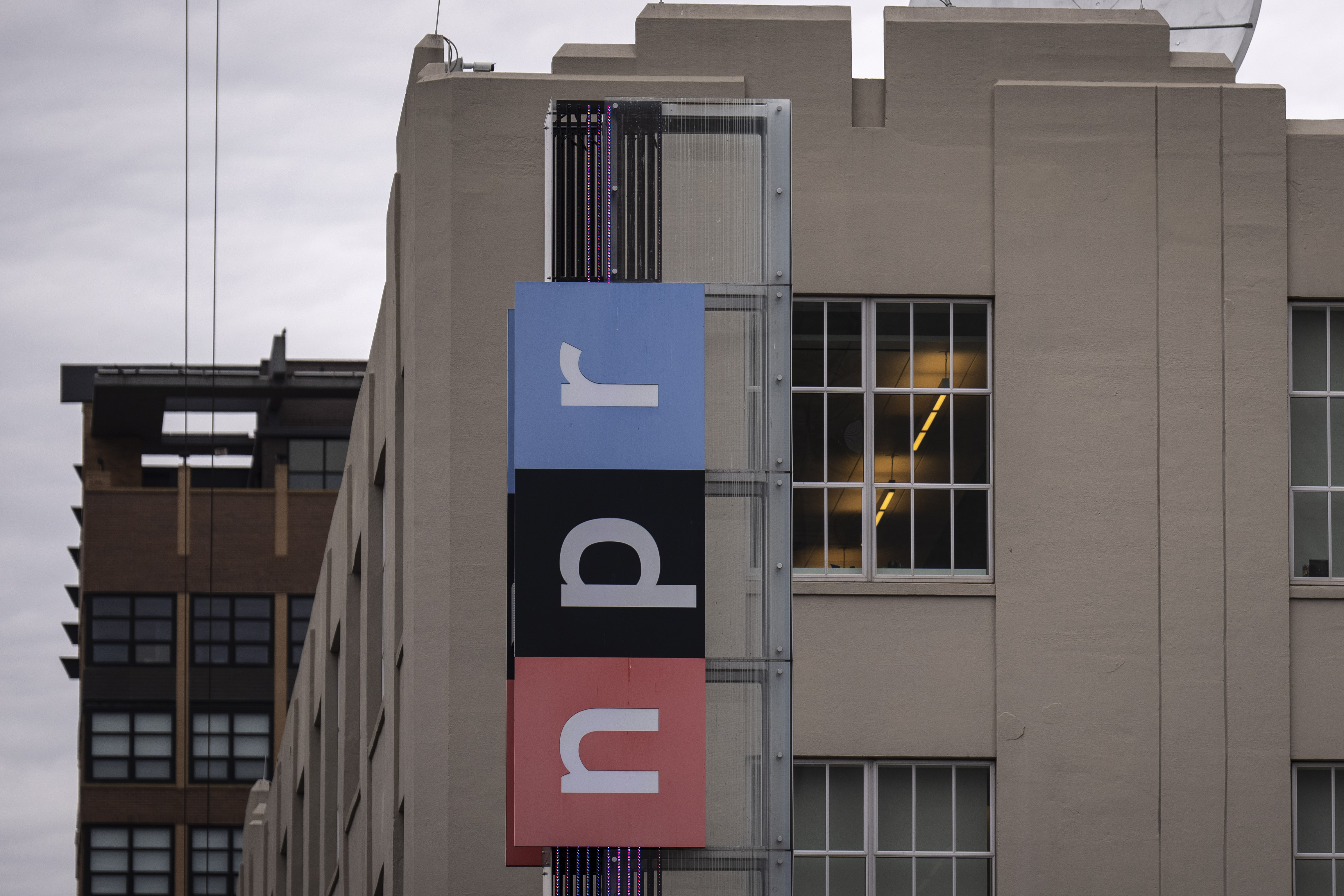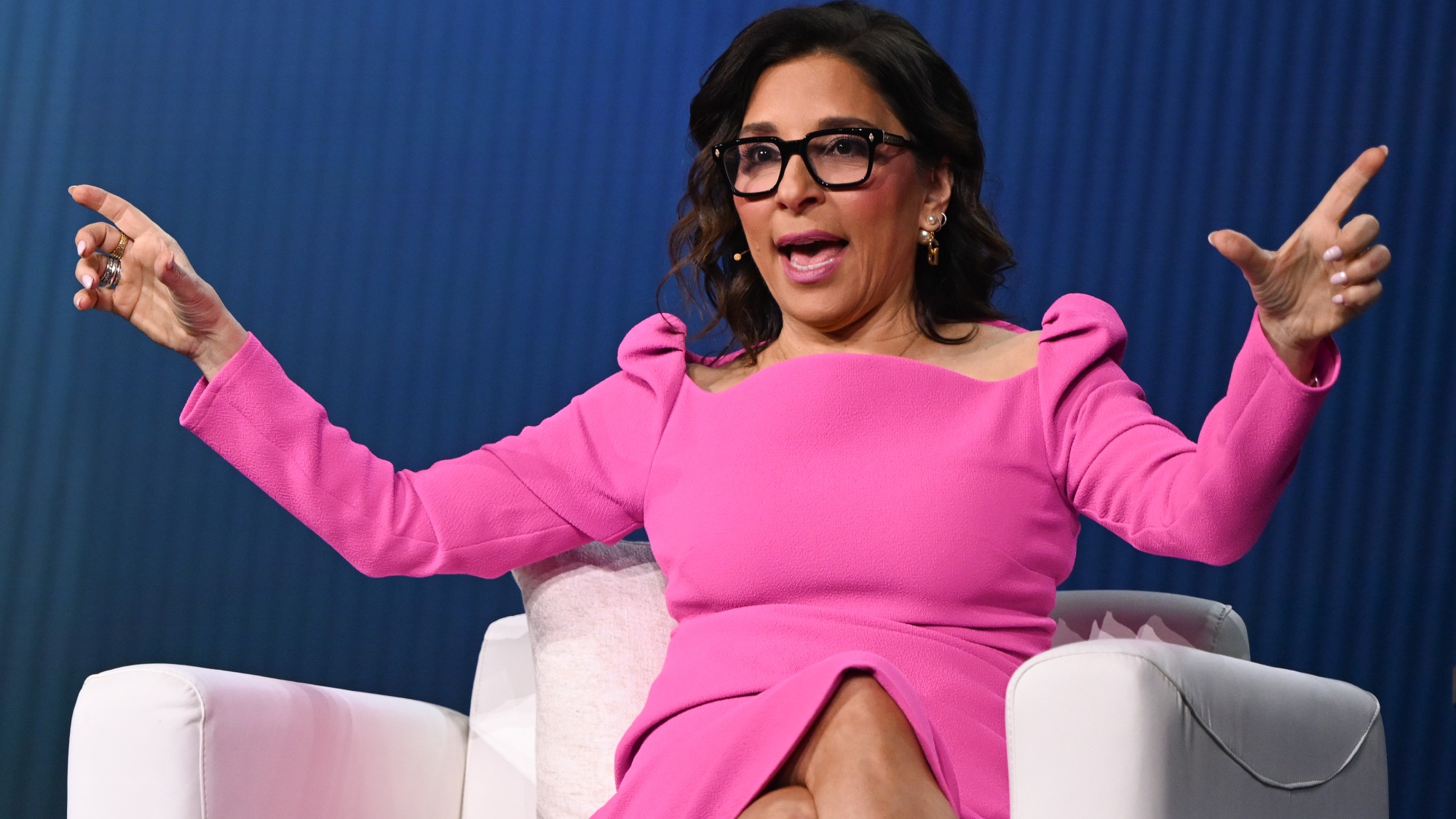Will NPR's departure hurt Twitter?
What it means for the platform that a major news outlet is calling it quits


A free daily email with the biggest news stories of the day – and the best features from TheWeek.com
You are now subscribed
Your newsletter sign-up was successful
National Public Radio quit Twitter this week after the social media platform started labeling the public radio organization as "state-affiliated media." NPR, the first major news organization to say it was permanently leaving Twitter, said Twitter had questioned its credibility by branding it with the same designation it has long used to describe propaganda outlets from Russia, China, and other autocratic countries, although Twitter later softened NPR's label to "government-funded."
NPR CEO John Lansing said the decision to halt fresh posts to the network's 52 official Twitter feeds was necessary to protect its reputation and allow it to continue producing its journalism without "a shadow of negativity." NPR's main feed has 8.8 million followers. Lansing acknowledged that NPR would be losing a way to showcase its work and engage with its audience, but said the "downside" doesn't matter as much as defending NPR's credibility. Twitter also put the "state-affiliated" label on the BBC, Voice of America, and public television broadcaster PBS, which also suspended its Twitter posts.
Elon Musk, who bought Twitter last year, responded to NPR's departure with a tweet saying, "Defund @NPR." He didn't make it clear whether he was calling for lawmakers to strip the network of its public funding, or urging listeners to withhold donations. Rep. Lauren Boebert (R-Colo.) chimed in by saying, "I've been saying that for quite some time! Let's get it done!"
The Week
Escape your echo chamber. Get the facts behind the news, plus analysis from multiple perspectives.

Sign up for The Week's Free Newsletters
From our morning news briefing to a weekly Good News Newsletter, get the best of The Week delivered directly to your inbox.
From our morning news briefing to a weekly Good News Newsletter, get the best of The Week delivered directly to your inbox.
Elon Musk strikes again
Twitter's fight with NPR is just the latest example of the platform's adversarial relationship with the media since Musk took over last year, said Sara Fischer in Axios. Along with PBS, CBS earlier suspended its tweets due to concerns over where Twitter was heading under the leadership of the billionaire leader of Tesla and SpaceX. The turmoil is a product of "Musk's impulsive reactions to competitive products or opinions that he dislikes." His petulance is "having an outsized impact on the media industry." The fighting is risky for Musk, because news outlets are "some of Twitter's most hyper-engaged users."
Musk might regret pushing media outlets away, said Sarah Frier in Bloomberg. Twitter owes its "outsized influence on the news cycle" to tweets by news organizations that are "promoting stories as they happen and getting inspired about what to write next." Musk capitalizes on "this dynamic to promote his own products and ideas." Twitter only generates 2 percent of NPR's traffic, so it can afford to "to take a stand against unfair treatment" and move on. Musk, however, is already dealing with an advertising exodus because of all the controversy he has stirred up. He is shooting himself by shooing away users, too.
NPR is exaggerating its independence
NPR might not be part of the government, but it is not as free from external influence as it claims, said Ari Blaff in National Review. The network always notes that "roughly 40 percent of operational funding derives from corporate sponsorships and nearly a third from fees 'paid by local public radio stations.'" NPR was established with a mission to "represent 'all of America,'" but a 2021 Knight Foundation study found it caters to "the politically correct elite left." A 2014 Pew Research Center survey found the "average NPR consumer has a stronger liberal bias than Fox News consumers have a conservative bias."
Whenever "NPR wants to present itself as a bastion of free and independent journalism," it insists its taxpayer funding is only 1 percent of its revenue and means nothing, said The Wall Street Journal in an editorial. But whenever its government funding, rather than its credibility, is on the line, it issues "doomsday prophecies" about how its voice will be silenced without government support. If taxpayer largesse is "irrelevant" to NPR, the "way to win the argument" with Musk is to endorse his call to end its government funding. You can't have it both ways.
A free daily email with the biggest news stories of the day – and the best features from TheWeek.com
Harold Maass is a contributing editor at The Week. He has been writing for The Week since the 2001 debut of the U.S. print edition and served as editor of TheWeek.com when it launched in 2008. Harold started his career as a newspaper reporter in South Florida and Haiti. He has previously worked for a variety of news outlets, including The Miami Herald, ABC News and Fox News, and for several years wrote a daily roundup of financial news for The Week and Yahoo Finance.
-
 How to Get to Heaven from Belfast: a ‘highly entertaining ride’
How to Get to Heaven from Belfast: a ‘highly entertaining ride’The Week Recommends Mystery-comedy from the creator of Derry Girls should be ‘your new binge-watch’
-
 The 8 best TV shows of the 1960s
The 8 best TV shows of the 1960sThe standout shows of this decade take viewers from outer space to the Wild West
-
 Microdramas are booming
Microdramas are boomingUnder the radar Scroll to watch a whole movie
-
 Are AI bots conspiring against us?
Are AI bots conspiring against us?Talking Point Moltbook, the AI social network where humans are banned, may be the tip of the iceberg
-
 Elon Musk’s pivot from Mars to the moon
Elon Musk’s pivot from Mars to the moonIn the Spotlight SpaceX shifts focus with IPO approaching
-
 Moltbook: the AI social media platform with no humans allowed
Moltbook: the AI social media platform with no humans allowedThe Explainer From ‘gripes’ about human programmers to creating new religions, the new AI-only network could bring us closer to the point of ‘singularity’
-
 Will regulators put a stop to Grok’s deepfake porn images of real people?
Will regulators put a stop to Grok’s deepfake porn images of real people?Today’s Big Question Users command AI chatbot to undress pictures of women and children
-
 Inside a Black community’s fight against Elon Musk’s supercomputer
Inside a Black community’s fight against Elon Musk’s supercomputerUnder the radar Pollution from Colossal looms over a small Southern town, potentially exacerbating health concerns
-
 X update unveils foreign MAGA boosters
X update unveils foreign MAGA boostersSpeed Read The accounts were located in Russia and Nigeria, among other countries
-
 What's Linda Yaccarino's legacy? And what's next for X?
What's Linda Yaccarino's legacy? And what's next for X?Today's Big Question An 'uncertain future' in the age of TikTok
-
 X CEO Yaccarino quits after two years
X CEO Yaccarino quits after two yearsSpeed Read Elon Musk hired Linda Yaccarino to run X in 2023
